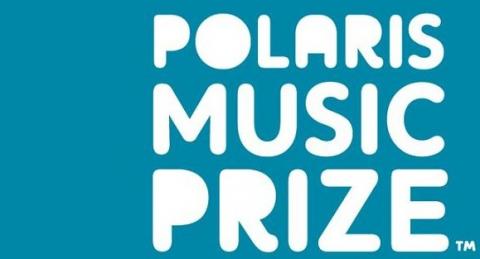posted by Andrew Kerr on July 26, 2013 - 6:04pm

The shortlist for the 2013 Polaris Prize was announced quite recently with another eclectic mix of top Canadian albums from the past year. The Polaris Prize, for those unfamiliar with it, is a $30,000 award given to the best full-length Canadian album based on artistic merit alone, and not influenced by genre, sales, or record label. A longlist of 40 albums is first decided on by a panel of judges before being whittled down to a shortlist of 10.
For the most part, I must say that the list each year is quite diverse. This year’s shortlist, for example, has instrumental post-rock (Godspeed You! Black Emperor), experimental indie-jazz (Colin Stetson), hardcore punk (METZ), electro-indie-pop (Tegan & Sara, Metric), and electronic-First Nations music (A Tribe Called Red) – just to name a few.
Upon closer inspection however, you may notice that this is Colin Stetson’s and Tegan & Sara’s second time on the shortlist, and Metric’s 3rd time (and the award has only existed since 2006). I do believe that they are all great albums, but I see a similar pattern of repeat shortlist nominees year after year. I am not sure how to remedy this, but I have a few musings.
The Polaris Prize has been great at remembering to include Francophone artists on the list each year. Past French shortlisters include Malajube, Galaxie, and Karkwa (who won the prize in 2010). While French artists don’t make the shortlist every year, there seems to always be a few nods to them on the longlist – an important occurrence which adds legitimacy to the Polaris Prize as being a prize for the best album anywhere in Canada.
However, one demographic that the judges seem to overlook each year is the work by Aboriginal artists in Canada. It’s true that A Tribe Called Red has now been nominated 2 years in a row for their freshman and sophomore album – but these are the only entries, to my knowledge, of an Indigenous act being nominated for the prize.
There are so many Indigenous acts in Canada writing and performing incredible music in a huge variety of different genres. I am not sure if Polaris makes it mandatory to have Francophone acts in their longlist each year, but it at least becomes evident that they are consciously keeping them in mind when selecting entries - possibly due to a certain number of Francophone judges on the panel.
It is very difficult for Aboriginal musicians in Canada to gain exposure. This is due to a myriad of reasons such as a widespread stereotyping of music by Indigenous artists. The Polaris Music Prize has the power and influence to dispel many of these stereotypes. While awards such as the Polaris should never have to fill quotas for music from certain genres or regions, it should ensure a fair voting process by enlisting more Indigenous judges. Only then will the prize be truly representative of all the great music being produced in Canada.


